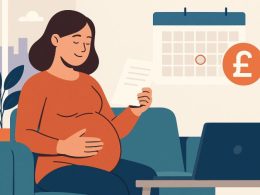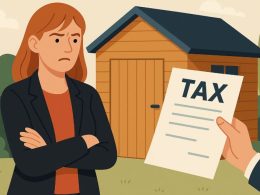Navigating the UK benefits system can feel overwhelming, especially when it comes to understanding how savings impact what you’re entitled to. Many people across the UK find themselves asking the same question: how much savings can you have on Universal Credit?
Whether you’re in between jobs, dealing with a health issue, or facing an unexpected life event, financial support like Universal Credit can be a lifeline. But eligibility isn’t just about income; your savings play a crucial role, too.
This guide will walk you through the details of how savings influence Universal Credit entitlement. Whether you’re already claiming or just exploring your options, this comprehensive breakdown will help you understand your position clearly.
Let’s begin with the basics of what Universal Credit actually is and how it functions.
What is Universal Credit?

Universal Credit is a benefit introduced by the UK government to simplify the welfare system. It merges six different legacy benefits into one monthly payment. The goal is to support individuals and families on a low income, whether they’re unemployed or working.
Who is Eligible?
Eligibility depends on several factors, including your age, location, income, and whether you have children or a disability. You must:
- Be 18 or over (though in some cases, 16- and 17-year-olds can claim)
- Live in the UK
- Have less than £16,000 in savings
- Not be in full-time education unless exceptions apply
Universal Credit is available to both individuals and couples, and it adjusts based on your household circumstances. If you live with a partner, both your incomes and savings are considered together.
Application and Administration
Applications are made online, and after submitting, a work coach from the Department for Work and Pensions (DWP) will schedule an interview to verify your circumstances. Once approved, payments are made monthly, directly to your bank account.
How is Universal Credit Calculated in the UK?
The amount of Universal Credit you receive is based on a standard allowance, which can increase depending on your circumstances.
Key Components of Universal Credit
- Standard allowance: Varies by age and relationship status
- Additional elements: For children, housing costs, disabilities, and caring responsibilities
- Deductions: Income from employment, other benefits, or savings can reduce your total entitlement
Monthly Assessment
Your Universal Credit is calculated monthly based on an “assessment period.” At the end of each period, the DWP calculates your entitlement based on your earnings, reported changes, and savings.
Work Allowance
If you’re working, a portion of your earnings may be ignored before deductions apply. This is known as a work allowance, and it helps make work pay while still allowing for support.
Understanding these components is essential, especially when considering how savings can impact your entitlement.
What Counts as Savings for Universal Credit?

When calculating Universal Credit, not all financial assets are treated the same. It’s crucial to know what counts as savings.
Counted as Savings
- Cash savings at home
- Money in bank or building society accounts
- ISAs (Cash, Stocks and Shares)
- Investments and bonds
- Premium Bonds
- Stocks and shares
- Second homes or properties (excluding your main residence)
Not Counted as Savings
- Pension funds (until accessed)
- The value of your main home
- Personal belongings such as cars, furniture, or electronics
- Business assets if you’re self-employed and the business is still operating
Savings are assessed based on their total value, not just liquid cash. If you own shares or a second property, their market value is included in your total capital.
The Department for Work and Pensions (DWP) periodically reviews these rules, but as of 2025, the list remains consistent with prior years.
How Much Savings Can You Have on Universal Credit?
The most critical part of this discussion lies in the rules around savings limits and how they affect your claim. The DWP uses a tiered approach to determine eligibility.
Savings Thresholds
| Savings Amount | Impact on Universal Credit |
| £0 – £6,000 | No effect on entitlement |
| £6,001 – £16,000 | Gradual reduction (explained below) |
| Over £16,000 | Not eligible for Universal Credit |
If your total savings are £6,000 or less, they do not affect your Universal Credit claim.
Between £6,001 and £16,000, the DWP assumes your savings generate income. For every £250 (or part of) over £6,000, your monthly Universal Credit is reduced by £4.35.
Example Calculation
If you have £6,300 in savings:
- £6,000 is disregarded
- £300 is treated as producing income
- This is equivalent to 2 increments of £250, so your monthly Universal Credit will be reduced by £8.70
These savings rules are a form of means testing, designed to prioritise those with fewer financial resources.
How Does Having Over £6,000 in Savings Affect Your Universal Credit?

The moment your savings exceed £6,000, the reduction begins.
Impact Structure
| Savings Range | Assumed Monthly Income | Monthly UC Reduction |
| £6,001 – £6,250 | £4.35 | £4.35 |
| £6,251 – £6,500 | £8.70 | £8.70 |
| £6,501 – £6,750 | £13.05 | £13.05 |
This reduction continues until your savings reach £16,000, at which point you’re no longer eligible.
The government treats your extra savings as providing an assumed income, even if you don’t actually earn anything from them.
These rules apply to both single claimants and couples. If you’re in a couple, your combined savings are assessed.
What Happens if You Have Over £16,000 in Savings?
Once your total capital exceeds £16,000, you’re usually not entitled to any Universal Credit. However, there are a few exceptions.
Temporary Exception for Transitioning Claimants
If you’re moving from another benefit, such as Tax Credits due to managed migration, you may continue receiving Universal Credit for up to 12 months, even if your savings are above £16,000.
This “transitional protection” is time-limited and designed to ensure a smoother transition.
Reporting Requirements
If you’re already on Universal Credit and your savings increase beyond £16,000, you’re required to inform the DWP immediately. Failure to report this change may result in overpayments, which you’ll need to repay, and could even lead to penalties.
Can You Still Get Universal Credit If You Own a Home or Other Property?

Owning a home doesn’t automatically disqualify you from receiving Universal Credit. However, other property holdings might.
Main Home
The value of your primary residence does not count towards the savings threshold. This means you can own and live in your home without it affecting your claim.
Additional Properties
If you own a second home or rental property, its market value will count as savings. Even if it isn’t producing rental income, the DWP will factor it into your total capital assessment.
You may be asked to provide a valuation or evidence of mortgage debt, which can offset the asset’s value.
How to Report Changes in Savings to DWP?
Keeping your Universal Credit information up to date is critical. If your savings change, you must report it.
Ways to Report Changes
- Log into your Universal Credit online account
- Use your digital journal to send a message
- Call the Universal Credit helpline
You Must Report
- Inheritance
- Sale of property
- Bonuses or one-time payments
- Lottery or gambling wins
- Large cash gifts
Timely reporting protects your benefits and helps you avoid overpayments or penalties.
Are There Exceptions or Temporary Rules That Allow Savings Over £16,000?

Yes, there are limited situations where you may still qualify for Universal Credit despite having more than £16,000 in savings.
Managed Migration Protection
When you’re moved from legacy benefits like Working Tax Credit to Universal Credit through managed migration, you may qualify for transitional protection for 12 months.
During this period, your savings above £16,000 will not immediately make you ineligible. This is a temporary rule intended to prevent a sudden loss of income during the switch.
After the protection ends, your claim will be reassessed under the standard savings rules.
What Other Support is Available If You’re Not Eligible for Universal Credit Due to Savings?
If you’re excluded from Universal Credit because of your savings, you may still qualify for other forms of help.
Alternative Supports Include
- Council Tax Reduction: Offered by local councils to help with council tax bills
- Local Welfare Assistance: Emergency help with food, bills, or household items
- Support for Mortgage Interest (SMI): If you own a home and are on a low income, this can help with interest payments
- Disability or carer’s benefits: These are not means-tested and may be available
You can also seek budgeting advice and free financial counselling from organisations like Citizens Advice and Shelter.
Conclusion
Understanding how much savings you can have on Universal Credit is essential for planning your finances and knowing what support you’re eligible for. As of 2025, the key figures to remember are £6,000 and £16,000.
Below £6,000, your savings don’t impact your claim. Between £6,001 and £16,000, you’ll see deductions. Above £16,000, you’re usually not eligible unless transitional protections apply.
If your savings situation changes, be proactive and inform the DWP. Failing to do so can lead to complications down the line. Use this guide as a reference to navigate Universal Credit confidently and understand where you stand.
Frequently Asked Questions
What types of savings are considered for Universal Credit?
Savings include money in current accounts, savings accounts, ISAs, investments, and the value of second properties.
Are pensions considered as savings for Universal Credit?
No, pensions that haven’t been accessed yet are not counted as savings for Universal Credit purposes.
Can I get Universal Credit if I have savings from an inheritance?
Yes, but if the amount pushes your total savings above £6,000 or £16,000, it will reduce or remove your entitlement.
Does owning a car affect Universal Credit?
No, personal possessions such as cars do not count as savings for Universal Credit purposes.
How quickly do I need to report changes in savings to the DWP?
You should report any change as soon as possible through your online Universal Credit account or via the DWP helpline.
Is there any way to reduce my counted savings to qualify for Universal Credit?
You cannot simply spend down your savings to qualify unless it’s for reasonable living costs. Deliberate deprivation of capital could be penalised.
Can a couple claim Universal Credit if their combined savings are under £16,000?
Yes, as long as their joint savings are below the threshold, they may be eligible.









